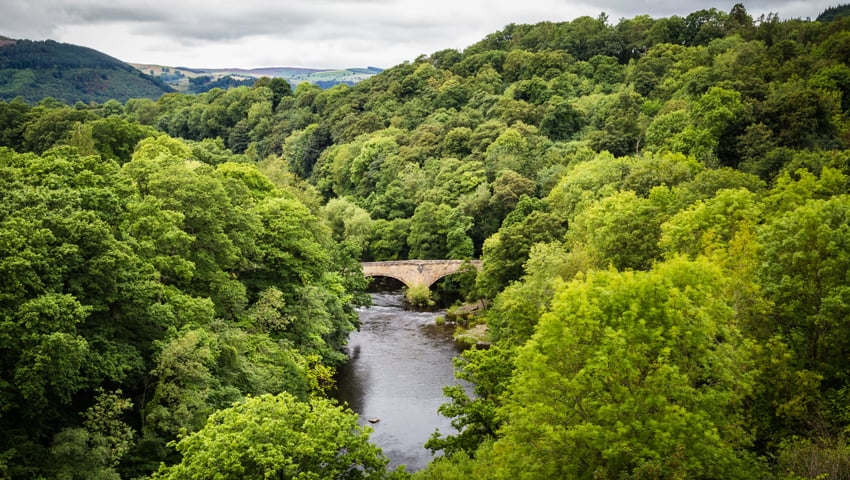Peter Powell, Chief Executive of the Welsh Dee Trust, has drawn attention to three slurry pollution incidents last week in Wales – each of which, he says, would have been devastating to wildlife living in the river.
Powell grew up on a dairy farm on the outskirts of Welshpool on the banks of the River Severn and this is where he developed a passion for the natural world. Now, he sees slurry as a fundamental challenge for farming, and asks, “How do we stop it from getting into rivers?”
Slurry is excreta from livestock of a consistency that allows it to be pumped. In Wales, Powell says, this is mostly from cattle but can also be from pigs and occasionally from concrete aprons of free-range poultry sheds.
Writing on X, Powell says, “Historically, all livestock were bedded on straw, but slurry-based systems have been much cheaper to manage, so over time, they have become more prevalent.” But – “A litre of slurry can actually cause much more damage than a litre of raw sewage because slurry is much more concentrated, consisting almost entirely of excreta with little water to dilute it.”
The high concentration of excreta in slurry means that each pollution event is even more damaging than storm discharges from human sewage overflows.
Powell says that slurry is getting into rivers from two primary sources. Firstly, from being spread on land in bad conditions – for example, before or even during heavy rain, or onto frozen ground. The slurry then flow over the land and into water courses. Secondly, slurry is escaping from farm yards, down clean water drains or overflowing from storage.
“In a perfect system,” says Powell, “all slurry would be collected and stored, with enough storage to ensure spreading only needs to take place during fine days in the summer months – and that it’s not spread within 10 metres of a watercourse, or spread before or during bad weather.”
Unfortunately, only some farms have perfect systems and the most common issue is a need for adequate storage.
By law, farms are required to have at least four months storage, depending on location and the type of animal farmed, and more storage in Nitrate Vulnerable Zones.
Powell says, “Most farms don’t have this, and I know of some with as little storage as a week.”
The wet winter has pushed farms to breaking point, and many have been left with the choice of allowing stores to overflow or spread in harmful conditions.
However, this year’s unrelenting rainfall is simply a taste of the wet weather that climate change will bring to Britain in the future
Powell considers the solutions, which he says are either to build more storage, stop rainwater getting into the system, or moving to a straw-based system.
Building more storage – “This isn’t cheap. The last quote I saw was for £125,000, which would have provided five of storage and replaced an outdated store – but prices have gone up since then.”
Stop rainwater from getting into the system – “Many farms have inadequate or broken clean/dirty water separation systems, most commonly broken roof guttering. This means they are filling the store with rainwater rather than slurry, using up vital storage.”
Move to a straw-based system – “The cost of storage and spreading has grown, making the economics of returning to a straw-based system more appealing, particularly for smaller beef farms who need to make an investment soon to increase storage soon.”
Each of Powell’s three choices cost money and most are out of reach for the average farmer without direct grant support. But as Powell points out, “We can’t have sustainable farm businesses if farmers can’t afford to invest in the future.”
(There is of course a fourth choice, which is to adapt herds and develop regenerative systems in which livestock can be successfully outwintered without slurry storage.)
Powell concludes by recognising the need for proper enforcement, which he says has to play a key role in stopping slurry pollution. “Like all industries,” says Powell, “some people will try to cut corners. It’s unfair to those farms who invest and farm within the rules if others are allowed a competitive advantage by ignoring them.”
